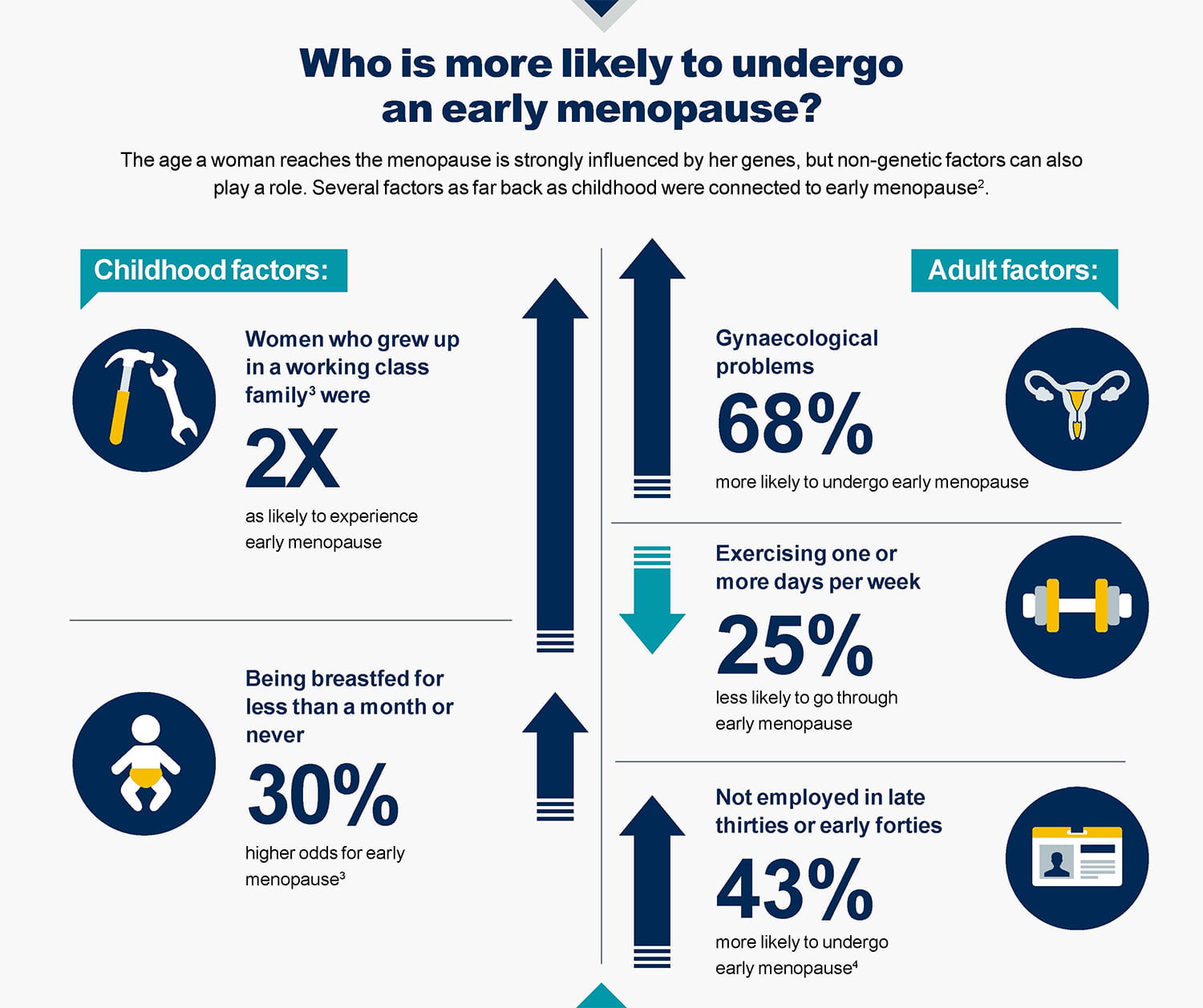Who is at risk of early menopause?
By IOE Blog Editor, on 4 March 2024

Several factors as far back as childhood can be connected to experiencing an early menopause. View the full infographic (Image: Centre for Longitudinal Studies).
4 March 2024
By Darina Peycheva, Alice Sullivan, Meghan Rainsberry and Ryan Bradshaw
The age a woman reaches the menopause is strongly influenced by her genes, but our research suggests that non-genetic factors can also play a role.
Menopause usually occurs between 45 and 55 years of age. If menopause occurs before the age of 45, it is referred to as ‘early menopause’. Our research looks specifically at early menopause that occurs spontaneously, but menopause can also occur following certain surgeries, medications or other treatment. (more…)
 Close
Close


